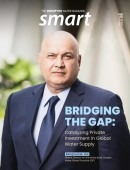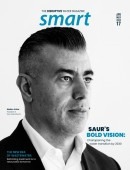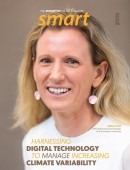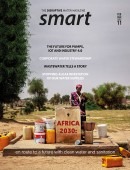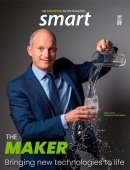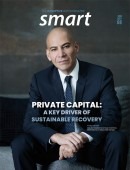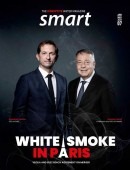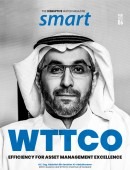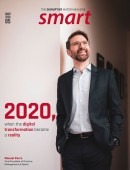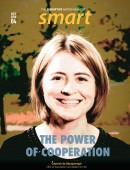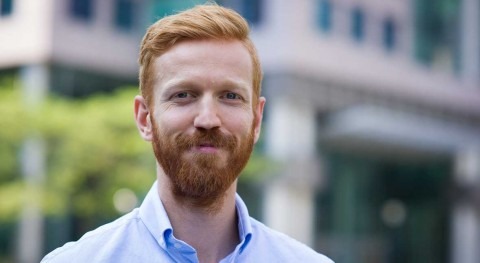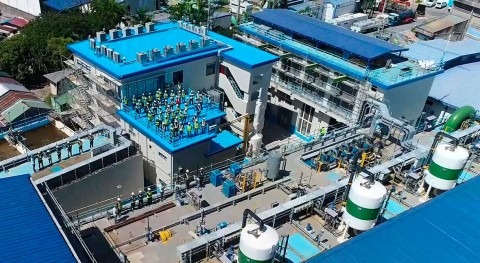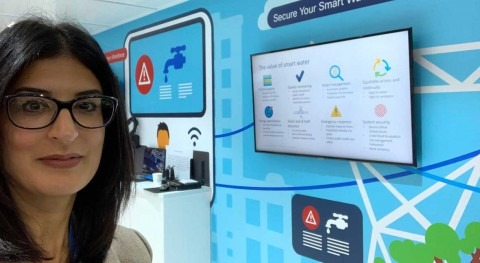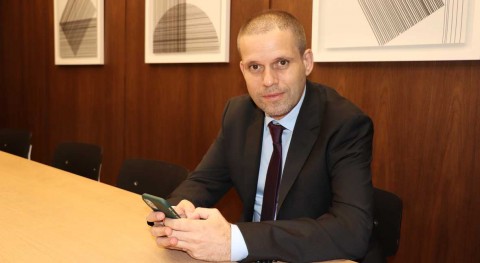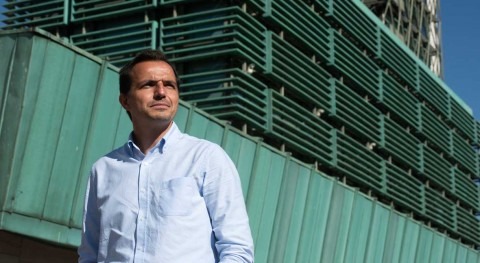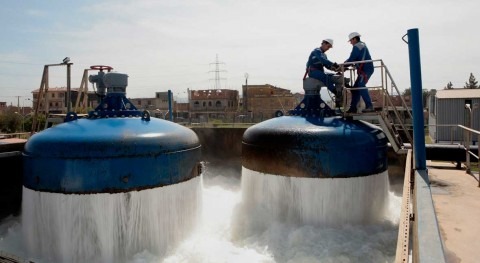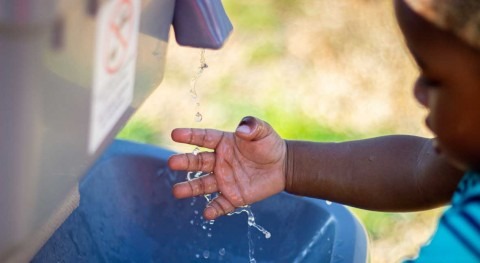Featured content
Content summary
At a time when the M&A activity has practically stopped due to the coronavirus pandemic, the water sector still attracts investors. In the third issue of Smart Water Magazine Monthly, we take a close look at the current affairs of the water industry, including the recent move by Veolia to purchase 29.9% of Engie’s stake in Suez.
Additionally, climate change has not stopped for the health crisis. Greenhouse gas concentrations in the atmosphere are at record levels and continue to increase. And with a circular economy more necessary than ever, we speak to water experts from the European Commission and international organizations, such as the International Water Management Institute (IWMI) on water reuse and global water management challenges.
With the COVID-19 as a backdrop, this edition will also analyse the latest trends in digitalization, wastewater sampling for SARS-CoV-2 and SDG 6 monitoring.
Features
Schneider Electric reflects on the role of the digitalisation of the water and wastewater sector in building a sustainable future.

An in-depth analysis of Veolia’s proposition to buy a 29.9% stake in Suez from Engie, Suez’s reaction and the possible outcomes.

Ten years after the recognition of the human right to water and sanitation, the pandemic has brought to light its vital importance.

In 2020, the UN SDG report reveals uneven progress and calls for increased cooperation amid the effects of the health crisis.

Interviews
Interview with Dr Bernd Manfred Gawlik. Scientific Project Manager. Joint Research Centre, European Commission
- The Umbrella Study seeks to gather together the tremendous knowledge production undertaken by the scientific research community
- As a matter of fact, we are breaking new ground here with regards to new models of inclusiveness, openness and knowledge transfer
- The normative power of facts leads to some common “do’s and don’ts” which we are trying to channel into a guide for operators
- We are collecting, documenting and communicating applications of wastewater surveillance and raising awareness in the health community
- The technology is ready from a scientific perspective, but it is crucial to build the necessary communication and governance channels
- I would suggest first to create the link with the health authorities, who oversee the situation and can interact with water utilities
- I would even go a step further by saying that the true value of the sewer surveillance will become visible in the time after COVID-19

Interview with Borja Sanz Llorente, Urban Water Business Area Manager at Hidroconta S.A.
- Hidroconta was born to provide services to the irrigation sector, and in the past few years we have focused on the urban water sector
- We understand that in the digital era we are in, the water sector has to take a leap forward in terms of the digitalisation of assets
- Hidroconta focuses on the technological leap regarding metering and communications, including the best IoT system for each project
- Creating an electronics department was a turning point in Hidroconta because of the technology and value added to our products
- There should not be black boxes in the market and each user, operator or manager should have tools to be as autonomous as possible
- Thanks to the flexibility of our equipment, we develop interoperability to facilitate the clients’ visualisation and control of data
- We work with different types of communications technologies, from GPRS and proprietary LoRa, to cutting-edge remote reading systems
- Knowing how to use and analyse the information is the most valuable thing in terms of obtaining a payback from a digitalisation project

Interview with Dr John S. Gulliver. Professor. Department of Civil, Environmental and Geo- Engineering. University of Minnesota
- Water quality is now fully integrated into the field of hydraulic engineering, with names like environmental hydraulics or ecohydraulics
- Green infrastructure is being utilized across the world for new projects, including large applications in New York and Philadelphia
- Anytime that you must place something underground, such as grey stormwater infrastructure, it is quite expensive and disruptive
- As a rule-of-thumb for green infrastructure, over the lifetime of a small practice, O&M costs will equal construction costs after 10 years
- Wetlands and rain gardens have a great capacity to adsorb toxic metals, while they are not that good at dissolved nutrient reduction
- We are trying to solve the retention of dissolved nutrients, the primary reason that our estuaries, lakes and rivers are still polluted

Interview with Dr Kelly Hill. Research Manager. Water Research Australia
- The ColoSSoS methods, whilst novel with respect to SARS-CoV-2, have built on extensive experience with sewage surveillance for other viruses
- The methods will continue to be refined to improve sensitivity and if possible to explore quantification of virus in the longer term
- The ColoSSoS program is one-of-a-kind as it is driven and informed by jurisdictional health departments every step of the way
- The expert group for data interpretation and integration relies on expert epidemiologists to understand and interpret the data
- The data will be analysed with other information: swab testing, serology, molecular epidemiology, contact tracing, distancing information
- We are many years from being able to rely solely on the surveillance efforts of wastewater as an indicator of infection in the community
- The significance of fragment detection should be determined by health specialists with the understanding of the whole suite of interactivity

Interview with Mark Smith, Director-General of International Water Management Institute (IWMI)
- COVID-19 underlines the importance of water for hygiene. And, in that sense the important message is the need for resilience in WASH
- We can ‘Build Back Better’ with WASH services designed to be more resilient to shocks including pandemics and climate change
- The Foundation is dedicated to advocating for the protection of the environment and the promotion of sustainable development
- By conferring this award on IWMI, the Foundation redoubles our commitment to delivering water solutions for sustainable development
- Recovery from the pandemic will also require effective water management that reinforces the stability of disrupted food systems
- Whatever we do to get SDG 6 back on track we need to adopt an integrated systems approach with climate resilient solutions
.jpg)
Interview with Ms Veronica Manfredi, Director for Quality of Life in DG Environment, European Commission
- Water reuse is linked with the European Green Deal agenda, in particular with the Circular Economy Action Plan and the Farm to Fork Strategy
- We should learn from the experience of Member States that are already using reclaimed water, such as Spain, Cyprus, and Malta
- By harmonising standards, the Regulation will encourage the water reuse practice and facilitate its up-take: it gives a strong signal
- I expect smart water technologies to play a crucial role in ensuring the safe and smooth running of water reuse for irrigation
- Efforts to re-use water also for purposes other than irrigation will remain important priorities for the Commission this decade
- We will arrive at a situation where farmers will re-use water because it makes economic sense, not only because other sources are scarce
- The provisions on risk management set out in the new Regulation rely on innovation to develop technologies enabling real time monitoring

Interview with Nico Saporiti, Senior Investment Officer, Global Water Specialist, Water and Hydropwer at IFC and George Butler, Water and Sanitation Specialist at IFC
- Most WSS are operated by public entities where the major challenges lie in attracting enough funding and expertise to the sector
- IFC has launched an initiative to develop a product to scale up its engagement in the municipal wastewater treatment and reuse sectors
- The increasing appetite from governments to implement PPPs relates mostly to capital intensive and technologically advanced projects
- We are also providing Advisory and Investment support to new clients who want to strengthen their resilience in the water sector
- There is a need to minimize resource consumption and focus on resource recovery, following principles of the circular economy
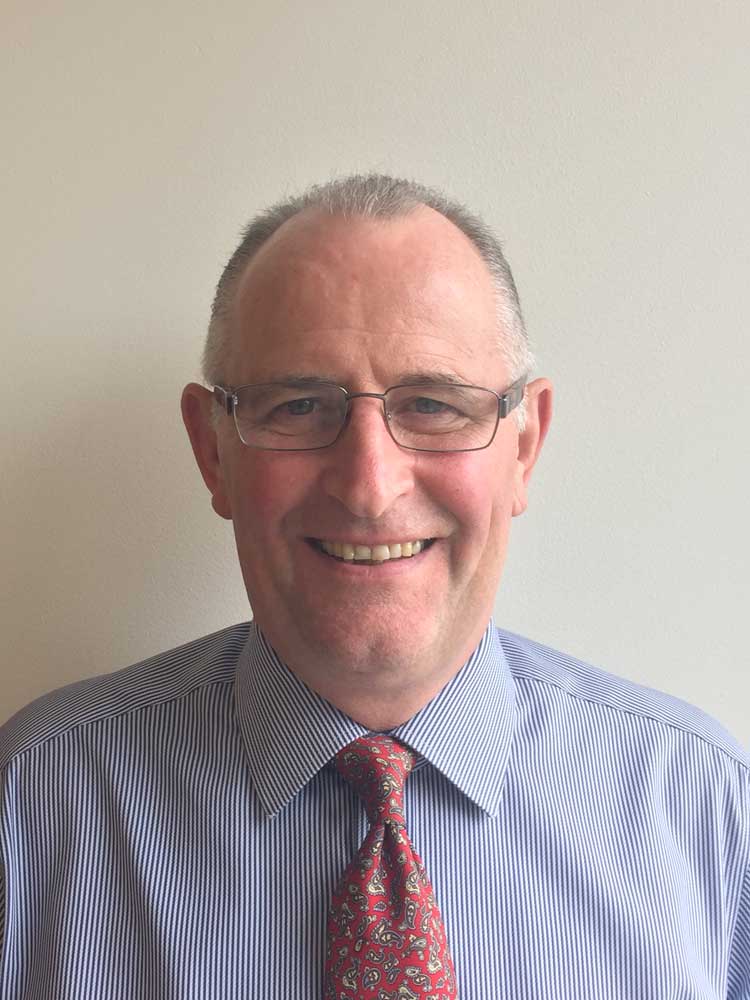

Interview with Sam Saintonge. Partner at XPV Water Partners
- This crisis will accelerate the adoption of certain types of solutions as utilities grapple with tighter budgets and reduced crew sizes
- Companies that allow utilities to leverage advances in hardware, software, and telemetry provide utilities with a “force multiplier” effect
- Take scarcity and wastewater management, for instance – you can help address both issues with a comprehensive wastewater reuse program
- We’re seeing a shift away from traditional approaches of tackling issues by building more infrastructure to more nimble approaches
- Any business model that will succeed needs to be able to balance customer needs, keeping employees happy and generating enough profits

Interview with Sielen Namdar, Industry Solutions/ Smart & Connected Communities Executive at Cisco
- Utilities can identify their key areas of challenge and goals that they want to achieve, then build small pilots for specific use cases
- It is imperative for water utilities to perform a thorough assessment of their systems and assets and understand their vulnerabilities
- As users, devices, and distributed applications have grown in number, the networking environment has become exponentially more complex
- Our team is helping water utilities achieve their goals by leveraging digital technology to operate their facilities more efficiently
- During the pandemic, utilities that have invested in digital technology including IoT and cybersecurity protocols have fared much better
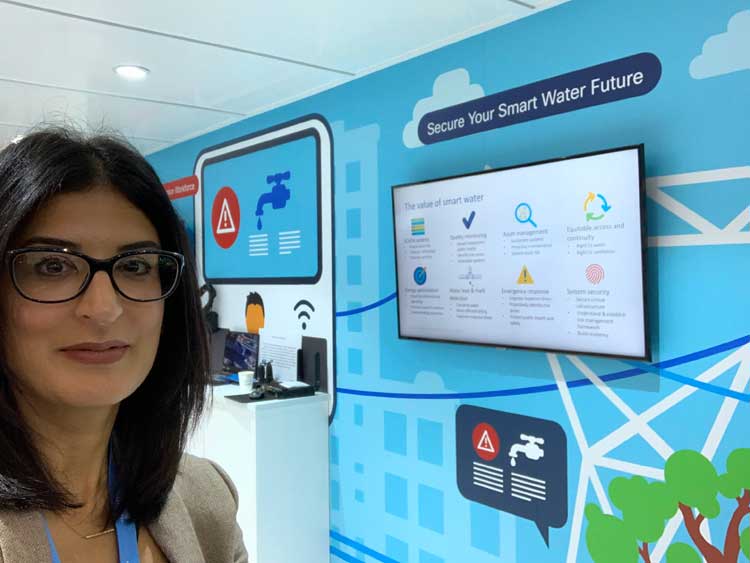
Interview with Walid Khoury, Leading Water Strategist
- COVID-19 will be remembered as a disruptive force, having pushed a traditionally conservative industry to embrace the latest technologies
- The talent pool is shrinking. We need to fast track talent development to be able to keep up with all the emerging challenges
- Water challenges will increase due to rapid urbanization and industrialization that are expanding without effective water governance
- Diversity and Inclusion are the way forward. Apart from being the right thing to do, they do contribute to the bottom line
- My network is becoming a platform with people from all continents interacting 24/7, sharing best practices, and real-life examples
- I am now halfway into my career and I don't want to rush in. People are calling me now an influencer, but I think it is a stretch
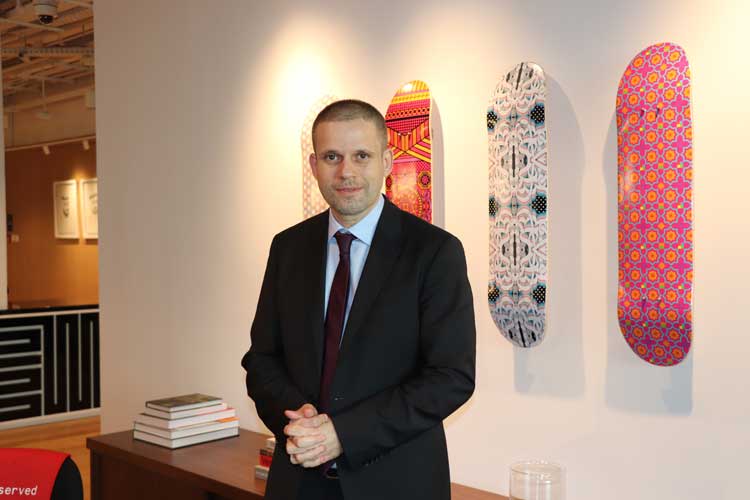
Interview with Steve Metcalfe, Head of Partnerships & Communications at Water & Sanitation for the Urban Poor (WSUP)
- We need to keep communicating to highlight the water crisis and show what needs to be done
- Giving institutions the resources to solve problems themselves, without recourse to aid, is the absolute key to making change sustainable

Opinion articles
- Dr Yiannis Kompatsiaris, Project Coordinator at aqua3S
- Karen G. Villholth, Principal Researcher, International Water Management Institute (IWMI)
- Ms Charafat Afailal, former Minister of Water, Morocco. Expert on water and climate, and Eng. Hassan Aboelnga, Vice Chair of MEWF, Water Security Task Force Member at IWRA, Management Committee member of Specialist Groups at IWA
- John Kissi, Project Lead, Southwark Council (London, UK), and Michael Green, Flood Risk Manager, Southwark Council (London, UK)
- Julio de la Rosa, ACCIONA ME Business Development Director for our water solutions


